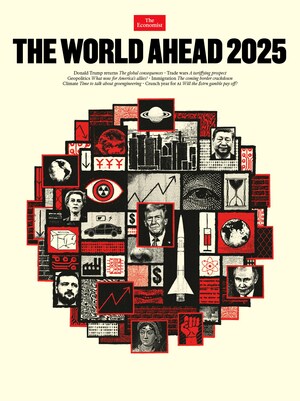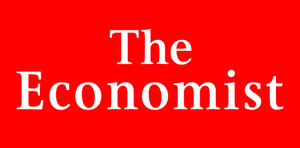LONDON, March 8, 2017 /PRNewswire/ -- According to The Economist's 2017 glass-ceiling index (GCI), a yearly assessment of where women have the best-and worst chances of equal treatment at work, in the OECD, a mostly-rich country club, women's labourforce participation rate of 63% has increased only 3 percentage points since 2005 while men's labour-force participation rate has stayed the same at 80%. And the gender wage gap has not moved substantially over the last five years with women still earning around 85% of what men do.
The GCI, which combines data on higher education, labour-force participation, pay, child-care costs, maternity and paternity rights, business-school applications and representation in senior jobs to create a ranking of 29 OECD countries, shows that the Nordics are the best places to work if you are a woman. Iceland leads the pack overall and many of the indicators including higher education, women on company boards and women in parliament. Turkey, Japan, and South Korea fall into the last three spots of the overall index.
Digging deeper, The Economist's interactive chart reveals the Index's winners and losers within the different indicators:
- Higher education: In Iceland, women's tertiary education attainment is 14.9%-points higher than men's; in Switzerland, it is 9.7%-points lower than men's
- Labour-force participation rate: Finland has the smallest gap between male and female labour-force participation rates; Turkey has the highest
- Gender wage gap: South Korean women have the highest pay gap (36.7%) in the index and Belgian women have the lowest (3.3%)
- Women in managerial positions: The US has the highest percentage (43.4%) of women in managerial positions while South Korea has the lowest (10.5%)
- Women on company boards: Iceland has the highest share of women on boards (44.0%), while South Korea has the lowest (2.4%)
- GMAT exams taken by women: Finland has the highest share of GMAT exams taken by women (47.5%); Japan has the lowest (21.6%)
- Women in parliament: Iceland has the largest percentage of women in its parliament (47.6%) while Japan has the lowest (9.5%)
- Net child-care costs: Britain has the highest net child-care costs at 45.7% of the average wage; South Korea has the lowest at zero
- Paid leave for mothers: Hungarian women have the most generous maternity leave at 71 weeks of paid maternity leave while the US ranks last at zero weeks
- Paid leave for fathers: Japanese men are given the greatest paid paternity leave at 30 weeks; the US ranks last at zero weeks
According to the Index's author, Roxana Willis, this year's GCI data shows that pipeline problems and gender gaps persist across the OECD: "With few women climbing up the ranks, and strong old-boys' network effects, The Economist's glass-ceiling Index shows that representation in typically well-paid and high-status jobs is closer to a third than half." Willis goes on to write that despite being in the top spot of the index, Icelandic women still think they have further to go before reaching parity: "On October 24th last year, in an act of protest, many Icelandic women left their workplaces early to reflect their gender pay gap of 14%."
This is the fifth year that The Economist has released its glass-ceiling index. When it was launched in 2013 there were five indicators and 26 countries; today it consists of ten indicators including maternity and paternity leave for 29 OECD countries.
To view the full index, please visit:
http://econ.st/2mU2W58
About The Economist (www.economist.com)
With a growing global circulation and a reputation for insightful analysis and perspective on every aspect of world events, The Economist is one of the most widely recognised and well-read current affairs publications. The paper covers politics, business, science and technology, and books and arts, concluding each week with the obituary. In addition to the web-only content such as blogs, debates and audio/video programmes available on the website, The Economist is available to download for reading on Android, Blackberry PlayBook, iPhone or iPad devices. The Economist Espresso, our daily briefing smartphone app, is also available for download via iTunes App Store or Google Play.
SOURCE The Economist
Related Links
WANT YOUR COMPANY'S NEWS FEATURED ON PRNEWSWIRE.COM?
Newsrooms &
Influencers
Digital Media
Outlets
Journalists
Opted In






Share this article